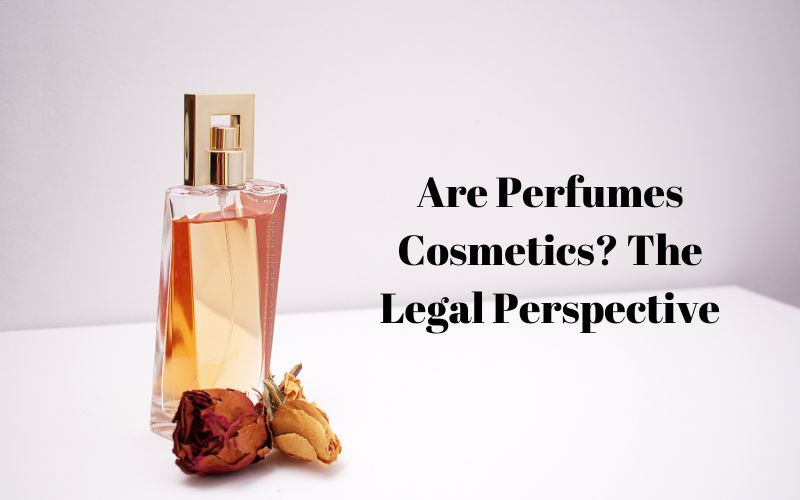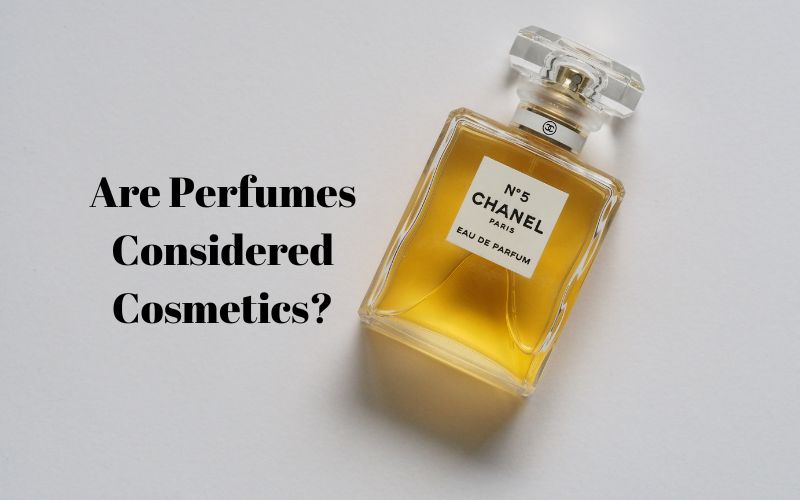Perfumes are much more than just a pleasant scent. They have become an integral part of the cosmetics industry, but have you ever wondered if perfumes are considered cosmetics themselves? In this blog, we will delve into the essence of perfumes and explore their role in the world of cosmetics. We’ll discuss the legal perspective surrounding perfumes and how they are regulated. Additionally, we’ll examine the health implications of perfumes in cosmetics and whether they can cause allergic reactions.
If you’re someone who is conscious about what goes into your skincare products, we’ll also provide tips on how to identify perfumes in cosmetic labels and alternatives to fragrance-filled products. Join us as we unravel the world of perfumes in cosmetics and answer some frequently asked questions about this fascinating topic.
The Essence of Perfumes: An Overview
The world of perfumes is fascinating, and understanding the essence of perfumes is crucial to appreciate their beauty fully. Best perfumes fall under the category of cosmetics, which encompasses various personal care products.
They are composed of different components and fragrance ingredients, carefully formulated to create pleasant and alluring scents. The production and labeling of perfumes are regulated to ensure the safety of consumers.
Regulations by organizations like the FDA and IFRA govern the use of fragrance materials and require a list of ingredients on product labels. Perfumes play a significant role in personal care routines, contributing to individual well-being through their delightful aromas and emotional appeal.
Perfume Composition: What Makes a Perfume?
Perfumes are crafted using a blend of fragrance oils, solvents, and fixatives. These oils can be obtained from natural sources or created artificially. Solvents like ethanol or water are used to dilute the fragrance oils and help spread the scent. Fixatives are added to ensure long-lasting fragrance.
Are Perfumes Cosmetics? The Legal Perspective

Perfumes are not classified as cosmetics from a legal standpoint. Instead, they are categorized as fragrances. The legal definition of cosmetics typically encompasses products used for cleansing, beautifying, or altering appearance. Women’s perfumes have their own separate regulations and guidelines.
How Are Perfumes Regulated?
Perfumes are regulated as cosmetic products in most countries, with regulations varying from one country to another.
The focus of these regulations usually includes labeling requirements, ingredient safety, and product claims. Regulatory bodies like the FDA in the United States and the EU Cosmetics Regulation oversee perfume regulations.
The Role of Perfumes in Cosmetics
Perfumes play an essential role in the world of cosmetics. They are considered cosmetics because they are used to enhance or alter one’s appearance, and they fall under the category of “fragrance” in the cosmetic industry. Composed of a combination of natural and synthetic ingredients, perfumes serve various purposes, such as creating pleasant scents or masking unpleasant odors.
Government agencies regulate perfumes to ensure safety and proper labeling. By adhering to regulations set by organizations like the FDA in the United States and the EU Cosmetics Regulation in Europe, the fragrance industry strives to provide safe and high-quality products for consumers.
Why Perfumes are Used in Cosmetics?
Perfumes are an essential component in cosmetics as they add fragrance and elevate the overall sensory experience. The scent of a cosmetic product plays a crucial role in consumer perception, influencing purchasing decisions.
Additionally, perfumes help mask any unpleasant odors associated with certain cosmetic ingredients, creating a unique and memorable brand identity.
Health Implications of Perfumes in Cosmetics
Perfumes, although not considered cosmetics themselves, play a significant role in cosmetic products. The ingredients used in perfumes can have potential health implications, including allergies and sensitivities. It is important for consumers to be aware of these risks and choose products that align with their personal preferences and health needs.
Regulations and labeling requirements for perfumes differ from those for cosmetics, making it necessary for consumers to carefully read product labels and understand the list of ingredients. By understanding the distinction between perfumes and cosmetics, consumers can make informed decisions when purchasing beauty products.
Understanding the Safety Aspects of Perfumes in Cosmetics
Perfumes are classified as cosmetics, as they are used to enhance or alter the body’s fragrance. However, compared to other cosmetic products, perfumes contain a higher concentration of fragrance oils. It is important for consumers to be aware that the ingredients in perfumes can sometimes cause allergic reactions or skin irritations, especially for individuals with sensitivities.
To avoid potential health issues, consumers should carefully read and understand the ingredient labels on perfume products. Regulatory bodies like the FDA have implemented guidelines and regulations to ensure the safety of perfume ingredients in cosmetics.
Can Perfumes in Cosmetics Cause Allergic Reactions?
Perfumes in cosmetics have the potential to cause allergic reactions, especially for those with sensitive skin. Fragrances, including essential oils and synthetic fragrances, are common culprits that can trigger skin irritations and allergies. It’s advisable to patch-test products containing perfumes before full application to check for any adverse reactions.
Tips to Avoid Allergic Reactions
Perfumes, although not considered cosmetics in the traditional sense, are often included in cosmetic products like lotions, creams, and makeup to provide a pleasant scent.
However, some individuals may experience allergic reactions to certain fragrances found in cosmetics. Symptoms can range from redness and itching to swelling. To avoid such reactions, it is essential to carefully read ingredient labels and opt for fragrance-free or hypoallergenic products.
Patch testing can also help identify specific fragrances that may trigger allergies. By taking these precautions, individuals can enjoy their favorite cosmetic products without worrying about allergic reactions.
How to Identify Perfumes in Cosmetic Labels?
To identify perfumes in cosmetic labels, look for terms like “fragrance” or “parfum.” They are often listed as ingredients but not specified individually. If you have fragrance sensitivities, opt for products labeled “fragrance-free” or “unscented.” Contact the manufacturer for clarification if you’re unsure about the presence of perfumes.
Deciphering Cosmetic Labels: A Quick Guide
When it comes to understanding cosmetic labels, it’s important to know that perfumes are considered cosmetics under the law. On the label, you may see perfumes listed as “fragrance” or “parfum.” These fragrances are made up of a combination of essential oils, synthetic fragrance compounds, and alcohol.
Perfumes are used to add scent to cosmetic products and can vary in composition and strength. It’s worth noting that some people may have allergies or sensitivities to certain fragrances, so it’s always a good idea to check the ingredient list before purchasing a cosmetic product.
Alternatives to Perfumes in Cosmetics
When it comes to cosmetics, perfumes are considered an integral part. Regulated by the FDA, they add fragrance to various cosmetic products. However, if you’re looking for alternatives to traditional perfumes in cosmetics, there are a few options to consider. Essential oils can be used as a natural and organic alternative, offering a more sustainable and eco-friendly choice.
Fragrance-free products are also available, which are beneficial for individuals with sensitivities or allergies. When choosing perfumes in cosmetics, it’s important to take into account personal preference, skin type, and potential allergens. By exploring these alternatives, you can find the perfect scent for your cosmetic needs.
Fragrance-Free Cosmetics: Are They Really Free from Perfumes?
While fragrance-free cosmetics are designed without added fragrances or perfumes, it’s crucial to note that “fragrance-free” doesn’t guarantee a complete absence of scents. Some ingredients may still have a mild scent. For individuals with sensitivities or allergies, it’s advisable to opt for products labeled as “unscented” rather than “fragrance-free.”
Frequently Asked Questions about Perfumes in Cosmetics
What exactly defines a cosmetic product? Are perfumes considered cosmetics within the industry? How are perfumes regulated by the FDA? Let’s dive into the main ingredients in perfumes and their purpose, as well as any potential health risks associated with their use.
Can perfumes be labeled as natural or organic? These frequently asked questions shed light on the ins and outs of perfumes in cosmetics, giving you a better understanding of this fragrant world.
How Can Consumers Make Informed Choices?
Consumers can make informed choices by carefully reading product labels and ingredient lists, familiarizing themselves with different fragrance ingredients, and checking for certifications or seals of approval from trusted organizations. Additionally, reading reviews and recommendations from other consumers or experts can also aid in making informed decisions.
What’s the Future of Perfumes in Cosmetics?
The future of perfumes in cosmetics is set to be innovative and sustainable. With a growing demand for eco-friendly and natural fragrance ingredients, the industry is expected to adapt and evolve. Advancements in technology may lead to personalized scents, while AI and machine learning could revolutionize scent formulations.
Conclusion
To summarize, perfumes are considered a vital element in the world of cosmetics. They add a touch of luxury and enhance the overall sensory experience of using cosmetic products. However, it’s important to understand the legal regulations and health implications associated with perfumes in cosmetics.
Allergic reactions can occur, but there are ways to avoid them and make informed choices as consumers. As we move forward, the future of perfumes in cosmetics will continue to evolve, with an increasing focus on fragrance-free alternatives. If you’re interested in learning more about this topic and staying updated on the latest trends, check out our FAQ section and stay informed about the future of perfumes in cosmetics by subscribing to our newsletter.
Author Bio:

Sayed Sayeedur Rahman is a professional Digital Marketer, SEO Expert, and Content Writer. He’s a certified professional with extensive professional experience working with USA and UK-based companies to grow their businesses. He’s the Co-Founder of TechLookBD digital marketing agency.
